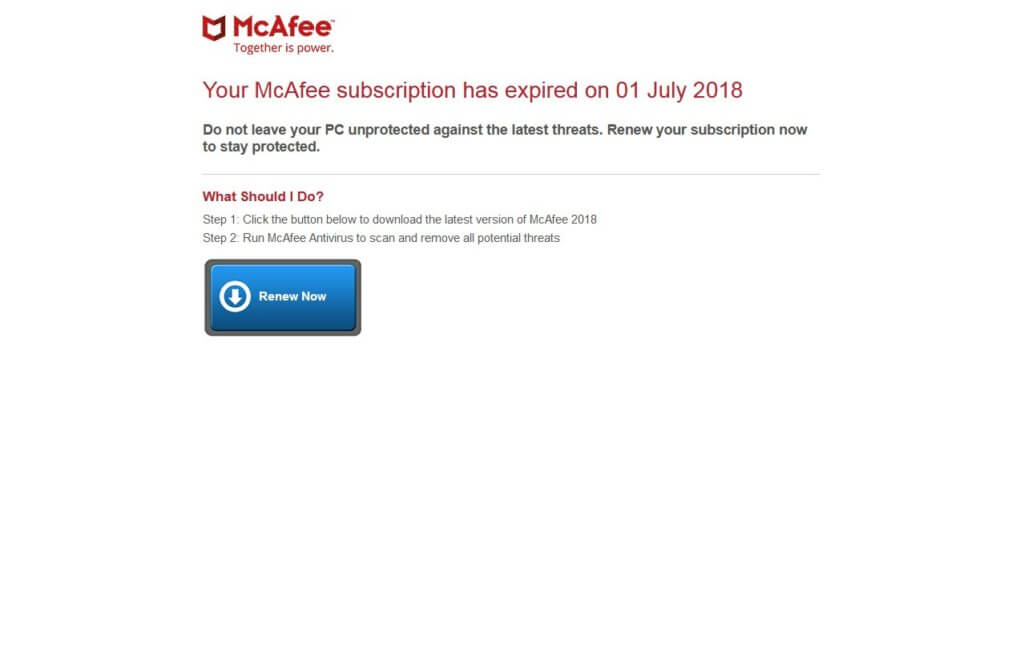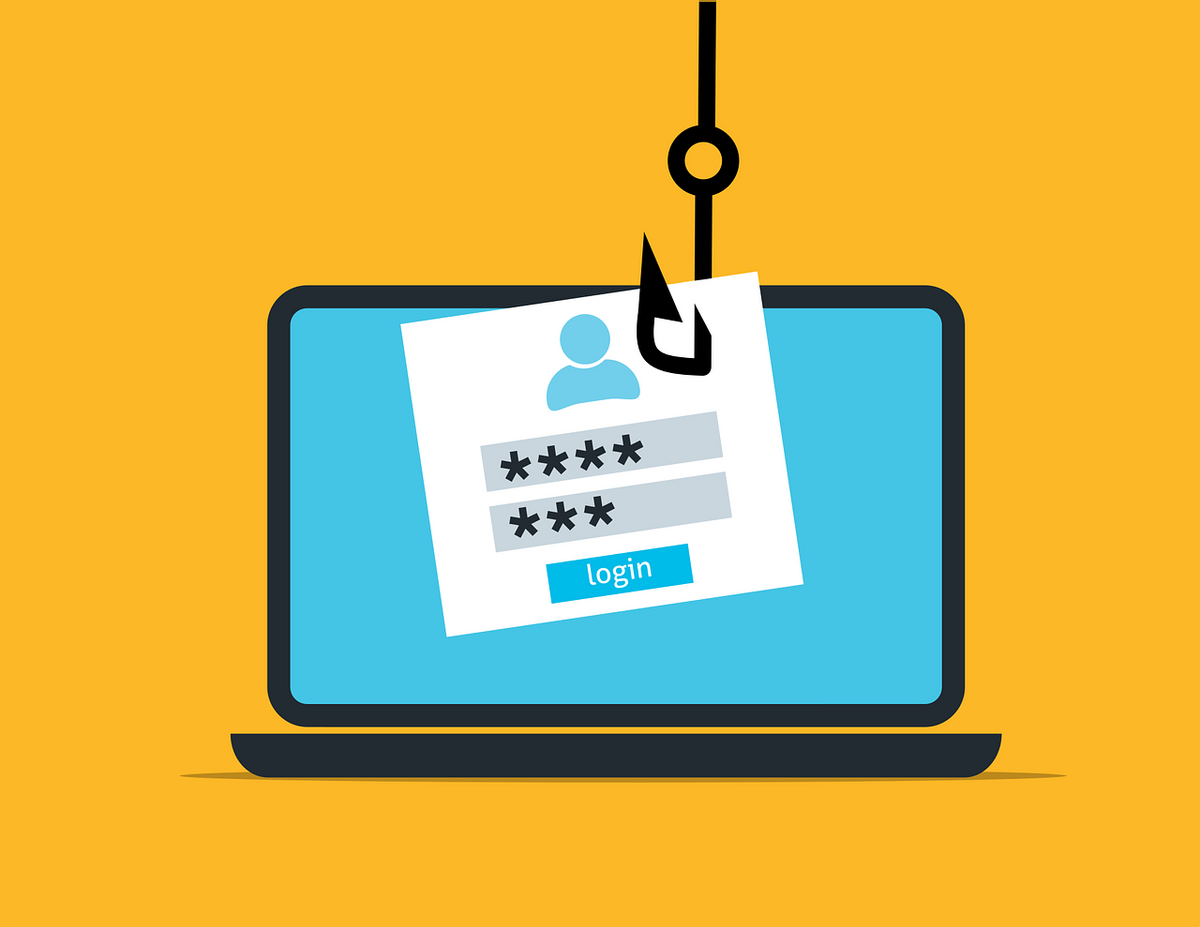McAfee Phishing Email Address: Your Ultimate Guide To Staying Safe
Phishing attacks are becoming more sophisticated every day, and McAfee phishing email address scams are at the forefront of this growing threat. Have you ever received an email claiming to be from McAfee, asking for your personal information? If yes, you're not alone. Cybercriminals are getting smarter, and their tactics are evolving faster than ever. In this guide, we'll deep-dive into the world of McAfee phishing email scams, helping you recognize, prevent, and protect yourself from falling victim.
It’s alarming how many people fall prey to these scams every year. The consequences can be devastating—identity theft, financial loss, and even damage to your digital reputation. But don’t worry; we’ve got you covered. This article will walk you through everything you need to know about McAfee phishing email addresses, so you can stay one step ahead of the hackers.
Whether you're a tech-savvy individual or just starting to understand cybersecurity, this guide is designed to provide actionable insights. Let’s take a closer look at how you can protect yourself from the dangers lurking in your inbox.
Read also:Nagi Hikaru Nsfw The Controversy The Facts And The Truth Behind The Buzz
Table of Contents
- What is Phishing?
- McAfee Phishing Emails: What to Look For
- Common McAfee Phishing Scams
- How to Identify a McAfee Phishing Email
- Red Flags to Watch Out For
- Steps to Protect Yourself
- Reporting McAfee Phishing Scams
- Real-Life Examples of McAfee Phishing Attacks
- Tools and Resources for Protection
- Conclusion and Final Tips
What is Phishing?
Phishing, in simple terms, is like digital fishing. Scammers cast their bait—emails, messages, or websites—hoping to catch unsuspecting victims. These emails often look legit but are designed to trick you into giving away sensitive info like passwords, credit card numbers, or Social Security details. Now, when it comes to McAfee phishing email addresses, the stakes get higher. Cybercriminals use the trusted brand name to make their scams seem more believable.
According to a recent report by NortonLifeLock, phishing attacks increased by 61% in 2022 alone. That’s insane, right? McAfee phishing emails are part of this growing trend, and they’re getting harder to spot. So, how do you protect yourself? Stick around, and we’ll break it down for you.
McAfee Phishing Emails: What to Look For
Spotting the Fake
McAfee phishing emails come in all shapes and sizes, but there are some common patterns. For instance, the email might claim that your subscription is about to expire or that your account has been compromised. They’ll urge you to click a link to "verify" your information or risk losing access to your account. Sound familiar? It should—these tactics are classic phishing moves.
One thing to remember: McAfee will NEVER ask for your personal info via email. If you receive an email asking for your password or bank details, it’s a scam. Period.
Common McAfee Phishing Scams
Renewal Scams
One of the most common McAfee phishing scams involves fake subscription renewal emails. These emails will claim that your McAfee antivirus subscription is about to expire and that you need to renew immediately to avoid losing protection. They’ll even include a "convenient" link to make the process easier. Spoiler alert: clicking that link is a bad idea.
- Fake Renewal Notices
- Impersonation of McAfee Support
- Urgent Account Alerts
Support Impersonation
Another popular scam involves impersonating McAfee support. You might receive an email claiming that your antivirus software has detected a virus on your system. The email will then direct you to download a "fix" or call a support number. In reality, these "fixes" are malware designed to infect your device.
Read also:Unlocking The Power Of Sotwe Gen Z The Ultimate Guide To Understanding And Thriving
How to Identify a McAfee Phishing Email
Identifying a phishing email might seem tricky, but with a little know-how, it’s easier than you think. Here are some key signs to look out for:
- Generic Greetings: If the email starts with "Dear Customer" instead of your actual name, it’s a red flag.
- Urgent Language: Phishing emails often use urgent language to pressure you into acting quickly. Phrases like "Act Now" or "Immediate Action Required" are big giveaways.
- Suspicious Links: Hover over any links in the email (but don’t click!) and check the URL. If it doesn’t match McAfee’s official website, it’s probably fake.
- Spelling and Grammar Errors: Legitimate companies like McAfee pay attention to detail. If the email is riddled with typos, it’s likely a scam.
Red Flags to Watch Out For
Things That Should Make You Suspicious
Besides the signs mentioned above, there are a few other red flags to be aware of:
- Requests for Personal Info: McAfee will never ask for your password, Social Security number, or bank details via email.
- Unusual Attachments: If the email includes an attachment you weren’t expecting, don’t open it. It could contain malware.
- Unfamiliar Sender: Check the email address carefully. Scammers often use addresses that look similar to legitimate ones but have slight differences.
Steps to Protect Yourself
Defense Against the Dark Arts
Now that you know what to look for, let’s talk about how to protect yourself. Here are some actionable steps you can take:
- Enable Two-Factor Authentication: This adds an extra layer of security to your accounts.
- Use Antivirus Software: Make sure your antivirus is up to date and from a trusted source.
- Verify Before You Act: If you receive a suspicious email, go directly to McAfee’s official website to verify its authenticity.
- Educate Yourself: Stay informed about the latest phishing tactics and share this knowledge with friends and family.
Reporting McAfee Phishing Scams
If you’ve fallen victim to a McAfee phishing scam or received a suspicious email, it’s important to report it. You can do this by forwarding the email to abuse@mcafee.com. Additionally, you can report phishing scams to the Federal Trade Commission (FTC) or other relevant authorities in your country.
Reporting these scams not only helps you but also aids in stopping the scammers from targeting others. It’s a win-win situation.
Real-Life Examples of McAfee Phishing Attacks
Case Studies
Let’s take a look at some real-life examples of McAfee phishing attacks:
- Case 1: A user received an email claiming their McAfee subscription had expired. The email included a link to renew, which led to a fake website designed to steal login credentials.
- Case 2: Another user fell victim to a support impersonation scam. They called the number provided in the email and ended up paying for unnecessary "fixes" that were actually malware.
These examples highlight the importance of staying vigilant and taking proactive steps to protect yourself.
Tools and Resources for Protection
There are several tools and resources available to help you protect yourself from McAfee phishing scams:
- McAfee’s Official Website: Always verify information by visiting McAfee’s official site.
- Phishing Detection Tools: Many email providers offer built-in phishing detection features. Make sure yours is enabled.
- Educational Resources: Websites like StaySafeOnline.org provide valuable information on cybersecurity best practices.
Conclusion and Final Tips
McAfee phishing email scams are a serious threat, but with the right knowledge and tools, you can protect yourself. Always remember to stay vigilant, verify the legitimacy of emails, and report any suspicious activity. By following the steps outlined in this guide, you’ll be well-equipped to handle any phishing attempts that come your way.
So, what’s next? Take action! Share this article with friends and family to help them stay safe. And if you’ve got any questions or stories to share, drop a comment below. Together, we can make the internet a safer place.
Remember, knowledge is power. Stay safe out there!


